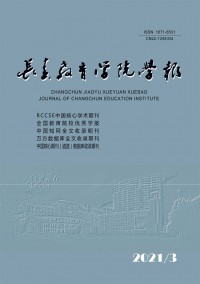赢读后感
前言:想要写出一篇令人眼前一亮的文章吗?我们特意为您整理了5篇赢读后感范文,相信会为您的写作带来帮助,发现更多的写作思路和灵感。
赢读后感范文第1篇
(肖永卓)
一天清晨,太阳像一个红红的圆球,躲在稀疏的树枝后边,红红的光束从树隙射到了我的床边,好像在摧促我起床。我利索的从床上爬起来,伸了伸懒腰,快步的走向洗手间,妈妈在厨房里忙着为我准备早餐,洗漱完毕后,推开书柜,拿起一本《读者》,津津有味地看了起来。我的眼珠停留在一个题目:《你也能赢一百次》,书中的故事深深地吸引了我。
这篇文章讲的是作者的父亲病了,得了癌症,年幼的作者又不能为父亲做些什么,面对即将逝去的父亲他感到无能为力,正当他难过时,一个叫做沙吉达的小朋友出现在作者的眼前,沙吉达要求与作者玩拍卡片的游戏,可是作者无法走出父亲癌症的阴影,没有心情与沙吉达玩游戏。但沙吉达想通过玩游戏的方法来帮助作者是,让作者振作精神,要乐观面对生活中的困难,沙吉达在玩游戏的过程中说:“只要你认真玩,你也能赢一百次”。在沙吉达不断的鼓励下,作者终于赢了好多次,沙吉达还不断地鼓励作者克服困难,要面对事实,勇敢顽强。最后沙吉达寄给了作者一个包裹,从包裹里作者才知道沙吉达也是癌症患者,和作者玩完游戏没多久就病逝了。
赢读后感范文第2篇
陈静
朱自清的散文<<背影>>影响致很深,以致在中小学生的心中“朱自清”这三个字已经与《背影》成为不可分割的一体。
今天,我也领会了大师的手笔—《背影》。朱自清的《背影》一开头就使读者一下子就抓住了中心,体会到了作品的中心。他之所以能感动读者是因为他对父亲的回忆时,写出了真情实感,和许多读者一样,我印象最深的是胖胖的父亲蹒跚的穿过铁路,跳上去又爬上来,为的就是给儿子买橘子。在写信的内容中他写到,“我身体平安;推膀子疼痛厉害,提笔,诸多不便,大约离大去之期不远矣。这些写得平静而又自然;而且都真实地描绘了作者内心对父母的喜爱,又因有这样的一位慈父而感到自豪,欢喜。
文章最后写到“我”读到此处,在晶莹的泪光中,又看见那肥胖的,青布棉袍黑布马褂的背影。这表达了作者思念年迈的父亲写得凄切感人。回想,我们每人都有一位慈父,为何我们一定要等到父亲年迈时才懂得父爱呢,父爱也是伟大的,有一句话说“父爱如山”这篇《背影》虽然很平淡无奇,甚至过于拙朴,但是如果我们细细品味的话,却感到这篇文章蕴含着浓浓的父子情,其中蕴含着一股感人的力量。其实朱自清的散文本身就感情自然,语言朴素简洁,结构严谨细巧,语句婉转。《背影》是他前期的代表作,他后来的散文更是语句洗炼成熟,《匆匆》、《荷塘月色》……
赢读后感范文第3篇
---Book Review: “Camille”
I read the Chinese version of “Camille” a few years ago. At that time I was deeply moved by the main character Marguerite Gautier. “Camille” or “The Lady of the Camellias” by Alexandre Dumas, fils, is the story of Marguerite Gautier, a young courtesan, or kept woman, in Paris in the mid 1800's, and how she falls in love with a young man, Armand Duval, and then tries to escape from her questionable past. Unfortunately, it comes back to haunt her and she ends up returning to that life and dies painfully and alone, but with the knowledge that she was a noble woman at heart. When I first began to read the book, I did not care for Marguerite or her attitude or lifestyle, but as I got further into the narrative, I realized that her saucy attitude was a front to cover the lonely woman that she really was. She felt used, abused and unloved, until the gentle Armand Duval came into her life and showed her that he loved her as a person and not for what she could do for him. It must have taken great courage for Marguerite to leave the life she had lived for so long, knowing all along that it was probably too good to be true and would not last indefinitely. And it also showed that Marguerite really loved Armand Duval for she could even change herself for him.
However, happiness didn’t last for long. When M. Duval, Armand's father, came to her, pleading for her to leave Armand to save both Armand's reputation and that of his younger innocent sister, Marguerite saw a way to become pure of heart, if not in body. She felt that it was her duty, because she loved Armand so much, to do this even though it meant giving up her own happiness and hurting Armand temporarily. She reluctantly returned to her former life, knowing that some day Armand would forgive her. Sadly, she died in debt and basically alone, except for her one female friend, Julie Duprat, who helped her during her illness. She had her journal sent to Armand after her death, explaining why she had made the choices she had. I think Dumas's last few lines about Marguerite being the exception, not the rule were quite true, and I also agreed with his view that while her lifestyle could not be condoned, we as a society assume that all of these type of women are cold and heartless, while this may not always be the case. A person can make the wrong choices in life when they are young, and try to redeem themselves, but sometimes past situations prevent them from changing their lives, even though they desperately wish to do so. This applies to both men and women in many different types of circumstances: involvement in crime; drug or alcohol abuse; gambling; prostitution; financial problems; poor marriage choices; etc. And this is the fact, which exists in the whole society.
As far as the other characters in the book, I think Marguerite was right in saying that no one truly cared about her, but only wanted something from her, the only exceptions being Armand and Julie Duprat. Of course, the Comte de G. and Comte de N. wanted her body and appearance. The Duke needed to “wake up and smell the coffee” and realize that she could never replace his dead daughter. If he truly cared, he could have helped her leave her lifestyle without “keeping” her himself. And lastly, Prudence was a blood-sucking leech who used Marguerite almost worse than the men. I also think she was jealous of the fact that Marguerite had so much more courage than herself and someone truly loved her.
赢读后感范文第4篇
The famous Russian novelist Chekhov created a down town by the township as apprentices, 9 year old boy, situated on a work in "all cards". Tells the tragic life of childhood here. After reading my tears, I can't be quiet for a long time.
Here is an orphan, only grandpa one. Grandpa is also due to economic difficulties, had to be 9 years old here to the city as an apprentice. Situated in the city alone, has been bullied. He was tortured - the boss hit him, and the food was poor, but there was no one to sympathize with him.
Situated at the head of the letter said: "I have no father and no mother, only one of your relatives." This shows that here is an orphan, lost the love of parents, the only ones - the poor old grandpa. Here is how poor, how unfortunate ah! The text also presents a real here at the boss's house being beaten, starved and cold situation, and why beaten? What do you use? How do you play? What do you eat for a meal? What are the specific written out. Here with such a dog's life at the boss's house, inspired me to Fanka misadventure of sympathy, the evil of the Russian ruling class really is murderous! The text also wrote, "dear grandfather, be merciful, take me out of here and go home, go back to the village!" I can't stand it any longer... I have no hope for my life, not even a dog. " Here for grandpa to bring him back to the village to a few words, these words piercing, copy from rolia. Where the card has become intolerable, life without hope, only a dead end. How cruel it is to exploit and oppress the working people by the reactionary rulers. I must cherish this perfect life, study hard, and strive to grow up all toiling big swollen days!!
In my childhood and childhood here, like a new society and an old society. When I was nine, I was happy, good and fun; there were many good friends around me, very free, and can do what they love to do. Hand clothing to eat a ready-cooked meal what do not have to worry about that; my childhood is like a colorful shell riotous with colour. I have been to many places and have seen a lot of beautiful scenery. My childhood is like a string of notes and can play a beautiful piece of music. My childhood always babbling, sometimes while he created music while dancing; my childhood like a diary found, every day can find different things, to learn and grow in happiness.
赢读后感范文第5篇
The poor is the work of Lev, Tolstoy, a famous Russian writer. At that time, the Russian working people were living in extreme poverty under the dark rule of the tsar, but they were kind hearted and noble minded. The text recounts the fisherman and her wife, SANA, who care and sympathize with the neighbor Simon. After Simon's death, the story of her two orphans is adopted, reflecting the pure and simple compassion of the poor and the noble quality of helping others. Through the life of the Sanna family, the author reflects the miserable life of the poor people during that period and their perfect mind.
The fisherman's family was very poor, and their days were very tight. But when the wife of the fisherman saw his neighbour Simon's death, and the sad and moving picture of the two children who were not sensible, he did not hesitate to take them home. After a series of psychological struggles, fishermen and Sanna firmly believe that no matter how hard they are, they should bring up these two children.
In this text, the deepest part of the text is: her head is back, the cold, green face shows the death of the quiet, a pale stiff hand that wants to catch what, hanging from the straw. Next to the dead mother, two small children were asleep, with curly hair, a round face, old clothes covered with old clothes, a curly body, and two small heads of light yellow hair close together. Apparently, when the mother was dying, she put her clothes on them and hugged their little feet with their old scarves. The child's breathing is even and calm, and the sleeping is sweet. From this startling description of the situation, I realized the poverty and misery of countless working people in the Tsarist era, and I also realized the great mother's love and the two children who were worried about the death of Simon.
What impressed me most is the description of Sanna's words: it's heartbeat badly, do not understand why, but I think it should be done. When SANA saw that two poor children were not raised by their mother, they would rather starve themselves or let Simon's two orphans starve to death, which fully demonstrated the kindhearted nature of Sonna. One of the words of the fisherman moved me out: "we have to take them and how to stay with the dead! Oh, we, we can always stay up!" this sentence is so firm, although the fisherman thought about his own days, but also insisted on raising the two orphans of Simon, showing the quality of the fisherman's help and the courage to respond. Although these words are made up of several simple words, they can reflect their good nature.
Reading this story, I think we should learn the poor, not greedy, selfish, more contented, more to share with others, and if we can have a noble, kind and compassionate heart, our life is plain but also very happy. On the contrary, if selfishness and greed are the same as stupid rich people.
免责声明:以上文章内容均来源于本站老师原创或网友上传,不代表本站观点,与本站立场无关,仅供学习和参考。本站不是任何杂志的官方网站,直投稿件和出版请联系出版社。


